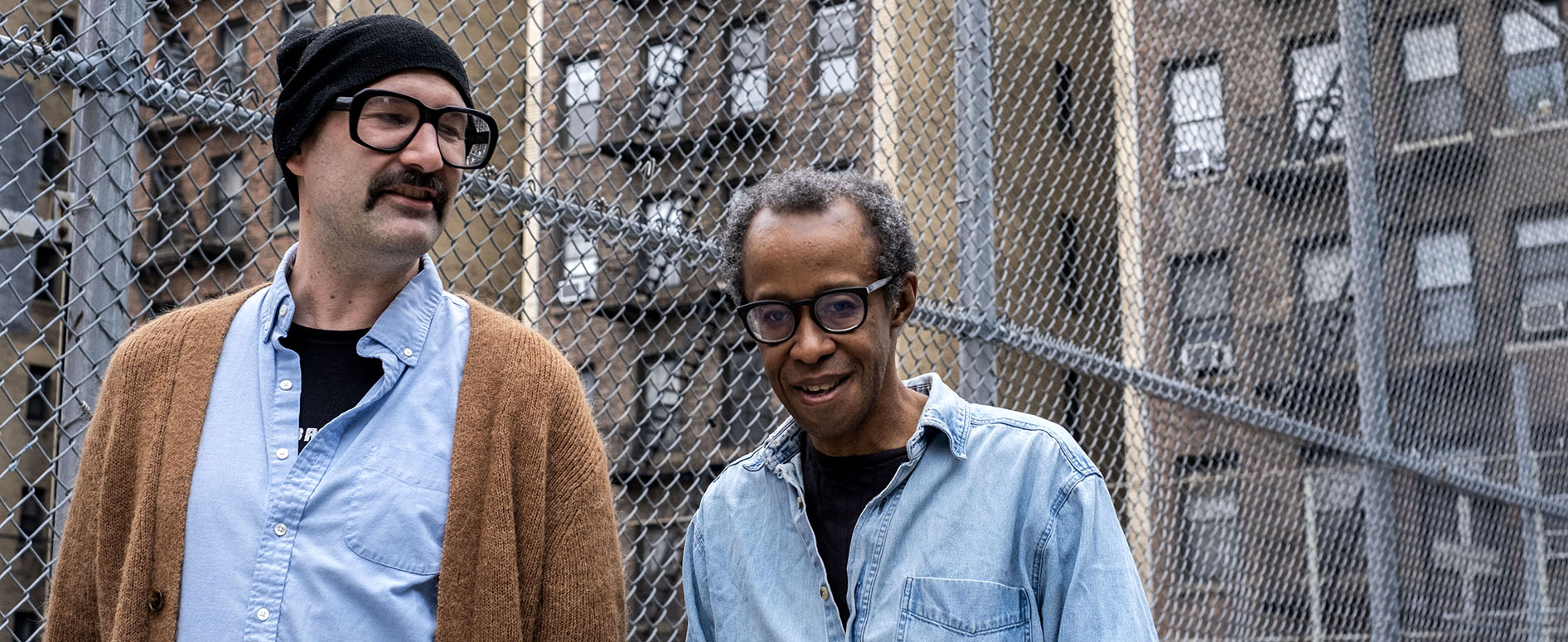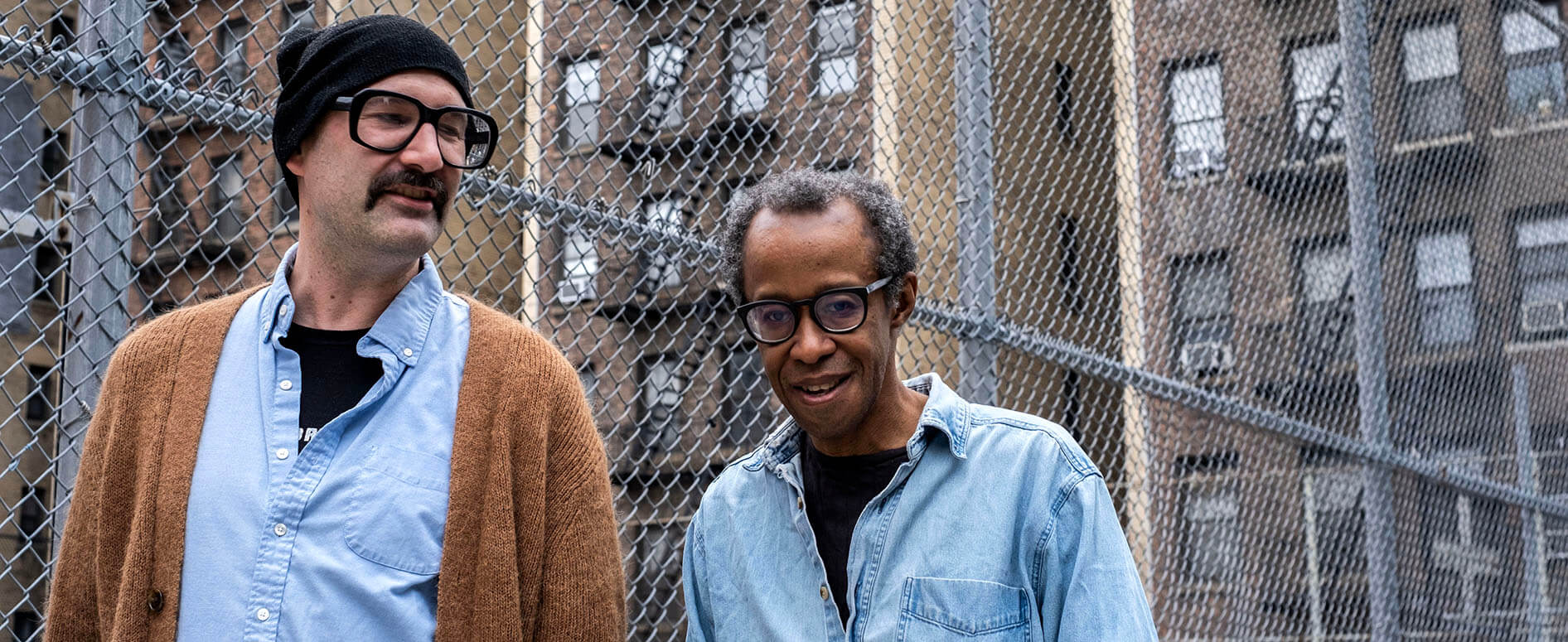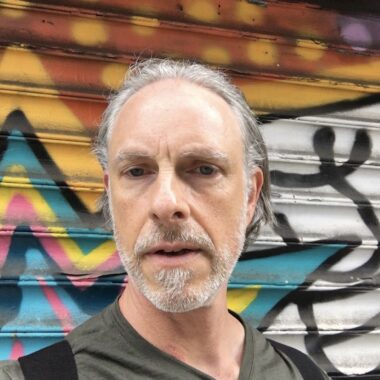Pianist Matthew Shipp has had such a consistent, sustained career, nearly 40 years as one of the foremost free jazz players, that it’s easy to lose sight of what he’s done as a musician. His built a grand discographical forest through his own albums and those on which he’s part of another ensemble—coming up with the important David S. Ware Quartet, he’s played so frequently with musicians like bassists William Parker and Michael Bisio, saxophonist Rob Brown, and drummers Whit Dickey and Newman Taylor Baker, that they seem to be part of the same musical family, making records and concert appearances because they’re together all the time anyway (this is not far from the truth, as noted below).
The trees to this forest are fascinating and notable, though, and it’s rewarding to pay attention to them, including collaborations with Antipop Consortium, J. Spaceman, Ivo Perelman, and some new and recent albums that are among the finest releases of the past few years: Daniel Carter’s Seraphic Light (AUM Fidelity, 2018) and Welcome Adventure Vol. 1 (577 Records, 2020); Pathways from the trio of Shipp, guitarist Gordon Grdina, and bassist Mark Helias (Attaboygirl Records, 2022); andThe Intrinsic Nature of Shipp, a beautiful, deep solo album that comes out later this month on Mahakala Music.

Shipp is a challenging musician, and that is the highest of compliments and recommendations. There is a real cultural divide in music, but it’s not between styles, racial groups, or high and low. It’s between music that is a manufactured product based around selling stardom—the music “industry”—and music that comes out of the human imperative of expression within a social culture. That latter kind of music isn’t challenging or difficult—there is no such thing as difficult music (except if you’re an arts institution administrator or addicted to the idea that money and fame are the only qualities that matter)—but it is a different experience. It’s not always three minutes and a steady backbeat, or any kind of self-contained unit. Often it’s something that you don’t understand the first time through, or even the second, or the fifth, but that is coaxing out sensations you don’t usually have, that promises something you can’t put into words, that has layers that keep going, that’s beautiful in a way that’s new.
That is the subject that’s wrapped in the riddle of a new, short book by Clifford Allen, SIngularity Codex: Matthew Shipp on RogueArt, the French free jazz label. Shipp has recorded several hundred albums, and the book explores his discography on RogueArt—which amounts to about two dozen—and is published by the label.
For a listener interested in Shipp and/or the New York free jazz scene, the book is an intriguing introduction. It’s elliptical by design; Shipp isn’t the direct focus, rather the book outlines him by featuring interviews with some of his most important musical colleagues, like Dickey and Brown. This does demand a context of knowledge and experience that goes beyond the book, so this is not meant for the general reader.
Allen has been listening to Shipp closely for decades, and captures the pianist’s ongoing development—one of the thrilling and even moving qualities in his playing has been hearing him shed things that have been less than his absolutely authentic voice, which has him at a place now where there’s a sparkle and joy in everything he plays, even when he’s creating thick, dark textures, the feeling that he’s surprising and delighting himself.
The conversations that Allen has tell a complementary story, one that in a sense is the real subject of the book, which is of New York City in general and the East Village/Lower East Side specifically as the home to free jazz. In the same way that Dixieland is part of the cultural DNA of New Orleans, and modern blues is rooted in Chicago even if its made in Germany, so is free jazz in the post-Coltrane world a New York City music. It is of course global in practice, a free-floating geography that spans cities and countries, but the musicians who are at its core, who connect with each other in various ensembles and reach across continents, have historically been concentrated in a niche in Manhattan—Shipp has been living on East 3rd Street for decades—and their musical lives are inextricable from their social lives and their being as citizens of the city. They play together and live in the same community, share the same experiences.
What makes Shipp such a satisfying challenge is that he doesn’t much sound like anyone else, and each time you encounter his playing, he sounds like he’s on his way to something else—his musical ideas aren’t complete phrases that come to an end that is a culmination of what’s come before, but the beginnings of paragraphs and chapters that you still haven’t gotten to. He’s always ahead and pacing himself further away, but it’s not hard to follow him because his path is always clear, give it attention and you’ll never lose your way.
There’s a thing in music promotion where press releases often come with a listing of other artists, i.e. listen to this if you like to listen that. If I were writing a press release for Shipp, it would be something like, listen to this if you like to listen to: Miles Davis from his 1965-68 Quintet and electric eras; the Symphony No. 7 by Jean Sibelius; Varése; Jimmy Lyons. This is not that Shipp is bound to any idea of eclecticism, in fact it’s something more like a very focussed, rich, and idiosyncratic spirituality, something that strikes me as a very American, earthy, no-frills Christianity that is searching and in no way egoistic, privately and sincerely mystical and even esoteric. His range isn’t other music that he’s collected, it comes from inside himself.
Since the first generation of jazz musicians, every player has learned by listening to their favorites who came before, picking up and transforming stylistic ideas. So of course, when Shipp plays you can hear bits of Ellington, Monk, Bill Evans, Mal Waldron, and others. Those are nods to things he likes and that he can use in the moment, exploring an improvisation, so one piece may have dense chords that remind the ears of Evans; Shipp’s hands gleefully stomping the way Ellington would; a tight logic between rhythm, melody, and harmony, a la Monk. Those are variations, important details—listen to a whole set, or a whole album, whether Shipp is a leader or a sideman, and what you hear is someone who is in the ongoing creation of his own language and style. To go back to the literary metaphor, Shipp is writing an enormous, fantastical, fascinating, and even entertaining novel, and it comes out in complete and coherent sentences.
Allen quotes Shipp alluding to this in his own playing. Talking about his friendship and working relationship with the great poet Steve Dalachinksy, who was an essential part of the free jazz scene, Shipp says: “He understands my perspective…and how that relates to American literature…and also how I’m a builder of architecture in the way that Borges is—he gets that Labyrinths is a massive, massive influence on me…”
That’s the challenge and the reward, beyond hearing someone stitch notes together in time, listening to Shipp means listening to an artist thinking, feeling, and building in real time. It’s knowing someone through sound.
Author
-

George Grella wrote the book on Miles Davis’ Bitches Brew. He write other stuff too. killyridols.substack.com/
View all posts
George Grella wrote the book on Miles Davis’ Bitches Brew. He write other stuff too. killyridols.substack.com/










